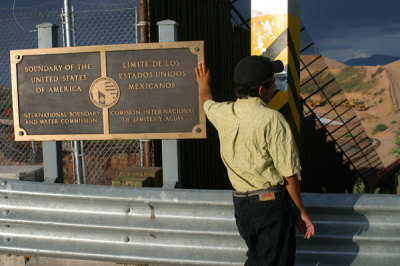Supreme Court Takes on Arizona Immigration Law
Supreme Court Justices decided Monday to take on Arizona’s immigration law case, inevitably leading to an escalating national debate on the controversial issue during the 2012 race for the presidency and Congress.

Immediately following today’s decision, the American Center for Law and Justice announced it will file an amicus brief backing Arizona's law and represent members of Congress and tens of thousands of Americans.
"S.B. 1070 reflects a sensible and constitutional method for Arizona to protect its citizens and borders from illegal immigrants," said Jay Sekulow, chief counsel of the ACLJ. "This is a critical case that will have a tremendous impact on the growing number of states seeking to enact laws that protect their borders and citizens.”
“Arizona's measure is not only appropriate and proper, it mirrors federal immigration law and incorporates federal standards,” he argued. “With the high court agreeing to now hear the case, we will file an amicus brief – once again representing members of Congress and thousands of Americans – urging the Justices to uphold the constitutionality the Arizona law."
Arizona’s state bill 10170 was passed last year and gave state police broader authority to detain someone they suspected of being in the country illegally, so long as the initial stop by police was for an unrelated reason, such as speeding.
Opponents to the bill argue that enforcement of the bill’s law is unfair, and would lead to racism and discrimination. Supporters of the bill insist that it is within state rights to enforce the federal law regarding immigration and that they must do so to curtail the growing crime rates in the United States attached to illegal immigrants.

 Supreme Court to Examine Ariz. Immigration Law
Supreme Court to Examine Ariz. Immigration LawThe Obama administration sided with the opponents and challenged the law as soon as it was passed, arguing that it is in conflict with the existing federal law.
Lower courts have frozen key aspects of the law, including allowing the police officer to ask for immigration papers from a detained or arrested person, from going into effect until a final judgment is made.
The Washington, D.C.-based ACLJ, which focuses on constitutional law, stated in its amicus brief backing Arizona’s Petition for Writ of Certiorari that it represents 59 members of Congress and more than 57,000 Americans who have signed on to the ACLJ’s Committee to Protect America’s Border.
Arizona Gov. Jan Brewer has made it clear she believes her state has to act aggressively to pass and enact the bill because the federal government has failed at its job to control immigration.
“Arizona bears the brunt of the problems caused by illegal immigration,” wrote Paul Clement, a lawyer for the state, in previous court briefs. “Arizona has repeatedly asked the federal government for more vigorous enforcement of the federal immigration laws, but to no avail.”
“The law is pretty straight forward,” Han Von-Spakovsky, senior legal fellow at the Heritage Foundation, recently told The Christian Post.
“The Constitution says that the federal government has jurisdiction over immigration. But the courts and Congress in the past have encouraged states to help enforce the federal immigration laws. They can’t do anything that is in conflict of the federal law, but can do things that would help enforce it,” Von-Spakovsky said.
Eight justices plan to hear the case, Arizona v. US (11-182), next spring. Justice Elena Kagan, who served as Obama’s solicitor general before her appointment to the Supreme Court, has recused herself from consideration of the appeal.
The Obama administration had hoped the Supreme Court would not have taken the case right away and instead waited until more cases from other states made their way through lower courts.
Arizona officials are trying to encourage the Supreme Court to move quickly and reverse the lower court’s standing, to allow key enforcement provisions to go into effect as soon as possible.
Immigration legislation is also pending in Utah, South Carolina, Indiana, Georgia and Alabama.




























